|
Microbiology
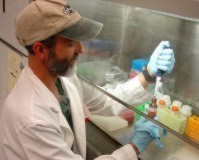
-
Detects food borne pathogens (naturally occurring
or terroristic)
-
Understands the processes and pathways of
microbial resistance
-
Understands how microflora in the
gastrointestinal tract alter the effects of chemical and other
microbial exposures
-
Develops microbes to clean up toxic spills in the
environment
-
Develops models using microbes to predict the way
that drugs will be metabolized (broken down and used or
excreted) by mammals
Chemistry

-
Assures the chemical purity of other work throughout NCTR
-
In
the area of counter terrorism, develops, validates, and applies
methods using mass spectroscopy for the rapid and inexpensive
identification of pathogens
-
Develops computer aided patter recognition methods to
distinguish between hoax and real terrorist acts
-
Utilizes nanotechnology for developing cancer therapies
-
Utilizes nanotechnology for developing screens to detect bomb
components
-
Develops sensor technologies for food freshness
Risk Assessment and Statistics
Toxicoinfomatics and Computational
Models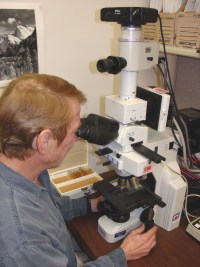
-
Utilizes
the latest computer technology to predict toxicity and biological
action based on chemical structure
-
Utilizes artificial intelligence based neural net computer
technologies to find significant information about chemical and
biological action that may not be seen with conventional methods
of analysis
-
Develops large databases (available on-line) to handle massive
data arising from new technologies.
Genomics
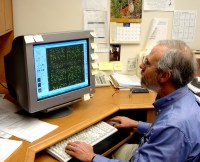
-
Structural Genomics
-
Detects genetic differences among individuals and assesses
the impact these differences have in the reaction to drugs
and the development of disease
-
Develops means of determining individual susceptibility to
prostate, breast, and colorectal cancer
-
Functional Genomics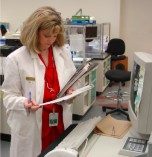
-
Detects changes in the functioning of genes following
exposures to chemicals or biologicals
-
Prints microarrays for lab animal and human studies
-
Meets with other researchers to help design techniques to
answer questions rapidly
-
Developmental Genomics
Metabolomics
-
Develops indicators of toxicity and disease that heretofore have
not been recognized or identified
-
Utilizes highly sophisticated technologies of nuclear magnetic
resonance and mass spectrometry to analyze the chemical and
biological pathway through the body
-
Focuses on how these pathways affect the liver, kidneys, and
heart
-
Utilizes these technologies to compare toxicities across species
to better understand how laboratory animals may or may not
predict human toxicities
Proteomics
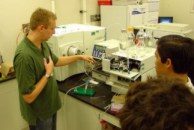
<Back
to NCTR |